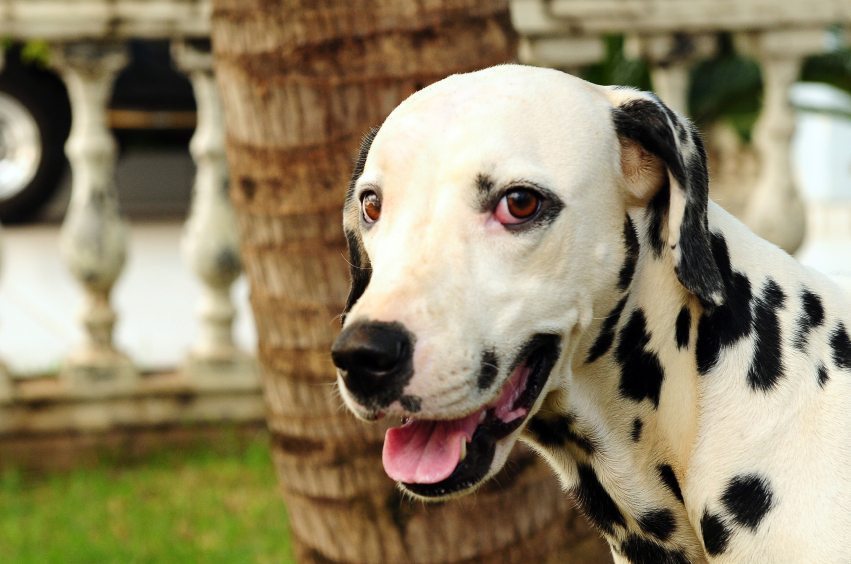
Adopting a purebred may change your life in ways you had not expected, in addition to changing a dog’s life. Such is the story of a Dalmatian named Lars and his dog mommy, Mary Rutherford, in Colorado. Once at death’s door due to an autoimmune disease, Lars was rescued first by Dalmatian Rescue of Colorado from a shelter in Texas, then by Mary, his forever mom.
Although Dalmatians do not normally compete in agility competitions, Lars has taken the competition by storm, becoming one of the top Dalmatians in the world of agility competition. Dalmatians are disadvantaged in these competitions due to their size. But Lars, now 9 and in agility training since age 2, makes up for his size by his incredible speed.
Mary says that Lars is competitive while during the demanding training as well as during competitions. But Mary’s main ambition is not winning, it is in bringing the message that despite where the dogs come from, any and every one can do amazing things.
Don’t judge a book by its cover; open up and see what new adventures await you inside. Search your heart to see if you have what it takes to go the extra mile and rescue the next champion – if not the agility champion, maybe the champion of the backyard Olympics.
Purebred Rescues Organizations
Purebred rescue organizations were created by dog fanciers of the various breeds to save unwanted, abandoned, abused or stray dogs of that breed. The mission of rescue organizations is multipurpose. One purpose is to find forever homes for these dogs; another is to provide an alternative to puppy mills. There are many wonderful dogs that need a home. Anyone willing to forgo adopting a puppy saves a dog in need and reduces the sheer number of unwanted dogs that wind up in shelters, many of which are ultimately put down for lack of space.
Most rescue groups work with local shelters who keep an eye open for purebred pups coming into the shelter. When one of these dogs comes in, the shelter contacts the rescue group who in turn assists in placing these dogs. Any dogs released to a rescue group means one more place at the shelter for another dog.
Rescue Groups Go Above and Beyond
The benefit of being placed with a rescue group is that these groups are experts in a particular breed. Where the shelter workers have general knowledge, the rescue group has specific knowledge of the breed and is able to work with that breed, with expertise in breed health issues and breed specific temperament to place the animal in a forever home.
In addition, a rescue organization, in contrast to a shelter, usually has a wide volunteer base of foster homes. This means rescue dogs can get off of death row, because foster dog parents usually are committed to that dog until he or she finds a permanent home.
Dogs rescued by these groups may also get additional benefits. While shelters provide limited medical care beyond spaying or neutering, rescue groups go far beyond the basic when necessary, providing veterinary care for special needs and injuries, making sure that they do whatever is necessary for a rescue to have a happy, healthy life.
You Think you can be a Forever Family?
Like many rescue organizations, purebred rescue groups are also selective when it comes to an adoptive family. Having put so much heart and soul into this dog, rescue groups have certain requirements of adoptive families. Expect to provide information about your home and family, as well as reasons for wanting a particular breed of dog.
These groups are well versed in the breed and know what type of environment is best for everyone. Some groups may even make a home visit to check out the yard and living space. There is a fee required to adopt one of these dogs, but most of that money goes back into the rescue groups’ resources used to provide medical care and other things that are routinely provided to their rescues.
Photo Credit: istockphoto.com









